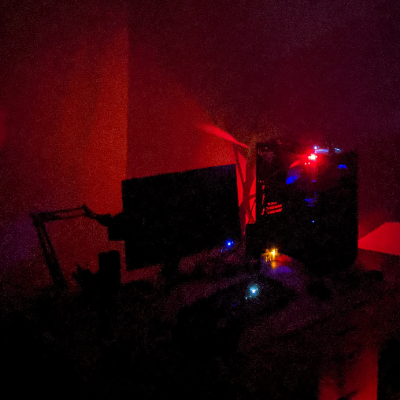- cross-posted to:
- [email protected]
- cross-posted to:
- [email protected]
Hello, not so long ago I discovered Jellyfin, and by extension Radarr, Sonarr, Bazarr, Jackett, etc.
So I immediately installed Jellyfin on a Hetzner server that I already had, powerful enough to have several people consuming content at the same time on these kinds of services.
As the hard drives at home were full, and I didn’t want to sacrifice my bandwidth, I got a Hetzner Storage Box to store the video content on.
So I’ve got Radarr, Sonarr and qBitTorrent installed on my computer, where I manage the downloads, upload them to the Storage Box which is then mounted on the server where Jellyfin is installed to serve the content (see the diagram above, the orange part would be a hypothesis for integrating more storage in the future).
Problems :
- Synchronisation between my local machine and the Hetzner Storage Box: as I was saying, I download everything locally and then upload everything with
rclone syncto the storage. The exact command is:rclone sync /mnt/2TB/Jellyfin HetznerBox:/Jellyfin --exclude "*.!qB" --transfers 10 --fast-list --checkers 500 --progress --log-level DEBUG --log-file=/var/log/rclone/rclone-sync-jellyfin.logThis has several problems, it’s slow, and I have a 1 GB/s fibre connection, and I doubt the problem is with Hetzner… Secondly, if I delete content on the storage server and run the command again, the content will be resynchronised. What’s more, it often happens that I run the command and nothing happens for a long time before the synchronisation starts. Thirdly,rclone syncforces me to keep a local copy of everything. rclone mountdoes not seem to respect the--vfs-cache-max-size: here is the command I use to mount the storage server on the server where Jellyfin is installedrclone mount HetznerBox:/Jellyfin /somepath/Jellyfin/ --vfs-cache-mode full --vfs-cache-max-size 100G --allow-other. But if I rundf -hI get/dev/md2 436G 148G 266G 36% /And if I runsudo du -sh Jellyfin/I get378G Jellyfin/The server only has Jellyfin installed, and I don’t know how to look precisely how much the vfs cache is using.- since Radarr, Sonarr and everything are on my computer, if I install Jellyserr on the same server as Jellyfin (which would be perfect for managing everything when we have several users), it won’t be able to communicate with Radarr and Sonarr.
Possible solutions:
- Don’t use my local machine. I’d like to use the Hetzner server for Radarr, Sonarr, qBitTorrent, etc. but the problem is that I don’t want to store the data on this server, but on the Storage Box. How can I download directly from one server to another?
- Could I use Mullvad VPN only for qBitTorrent downloads (and Jackett) on a Hetzner server, or is that too complicated or foolish?
Edit:
Diagram updated to adapt more to my configuration:

- the Hetzner servers are in Finland
- tried again overnight,
rclone mountworks fine, just extremely slow - downloads of “finished” torrents and those “in progress” are already separated


You might have setup something wrong then. It should work. The problem with torrenting on 1 server and saving the data to another directly via smb/NFS is that every write is at the behest of uploading to that network storage.
What would be better might be that you:
I have this all done internally. I torrent on one box, it’s finished and gets moved via NFS to the storage server. Which sonarr/radarr file away. They notify jellyfin to resync the library. The jellyfin box has the storage box mounted via NFS.
If you can test with small files, IE copy a 100m file onto the SMB share and then see if that was replicated to the storage box then you will have the basis of the solution.